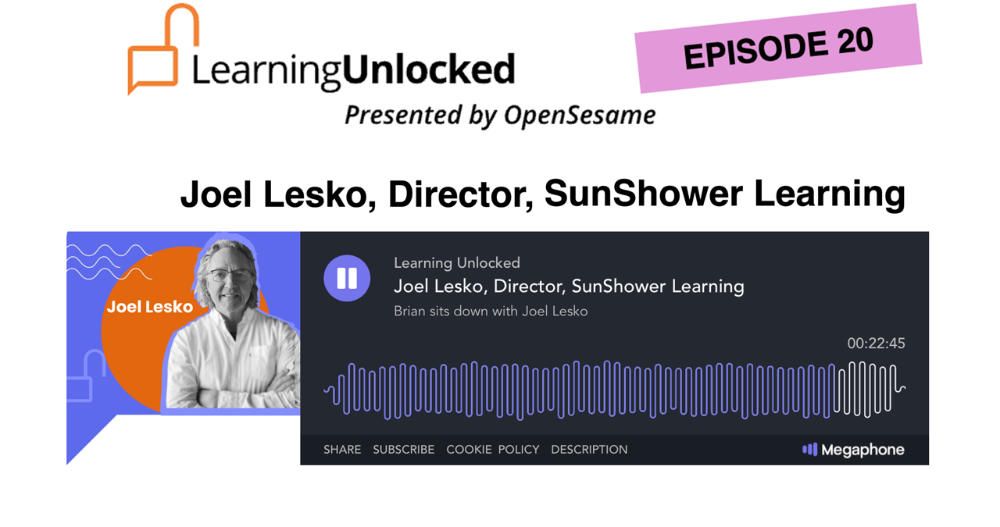Joel interviewed on the Learning UNLOCKED podcast

As a director, I’m most comfortable behind the camera. I enjoy interviewing people, asking questions and drawing out their stories. So, it was with a good deal of anxiety that I accepted the invitation to be interviewed on the Learning Unlocked podcast, sponsored by OpenSesame.
You can hear the 26-minute interview here or wherever you listen to podcasts – search for Learning UNLOCKED.
https://go.opensesame.com/lear
I was nervous when I dialed in for the recording but host Brian Berger put me at ease right away by reminding me that this will be out there on the worldwide inter-web forever…. Just joking. Brian really is a pro. He has over 17 years experience as an interviewer and host. His main gig is the Sport PR Summit where he’s interviewed celebrity athletes and owners, including Jack Nicklaus, NBA commissioners, Mark Cuban, and hundreds more.
With Brian’s first question, we plunged into a conversation about my work at SunShower Learning developing diversity, equity and inclusion programs. It morphed into a broader discussion of what diversity, equity and inclusion are and what we’re asking of people when we work with them around DEI topics. We are inviting people to explore their inner worlds – who they are with regards to race, ethnicity, culture, for example, and how they might have been conditioned through their education, family, religion, social media interests… and how that conditioning shaped them in their views and assumptions about people who are different from them.
In our Workshops via Zoom and the online unconscious bias e-Learning course, education around DEI is not like learning how to use PowerPoint or how to be safe with a piece of machinery. As Dr. Derald Wing Sue likes to say, “DEI work requires each of us to ask who we are as racial and cultural beings, what are the forces that shaped us and what privileges has society given us or denied us.” It’s important, deep and it takes time.
Brian asked me about microaggressions and our e-Learning course – what are microaggressions? I shared Dr. Sue’s definition that microaggressions are the everyday slights, insults, putdowns and invalidations and offensive behaviors that people of marginalized groups experience in their daily interactions with people who are generally well-intentioned – but are unaware of their impact. I’m glad Brian gave me the chance to define microaggressions because there’s a lot of misunderstanding. “Where are you from?” “You’re so articulate.” “I don’t see color.” These are all covered in the Disarming Microaggressions course.
Towards the end, Brian asked me about the power of stories to effect change. I could talk for hours about this! I shared about feelings and emotions as deep motivators for change and, well, hold on – you’ll have to listen to hear the rest! I hope you enjoy the conversation – please let me know what you think!

